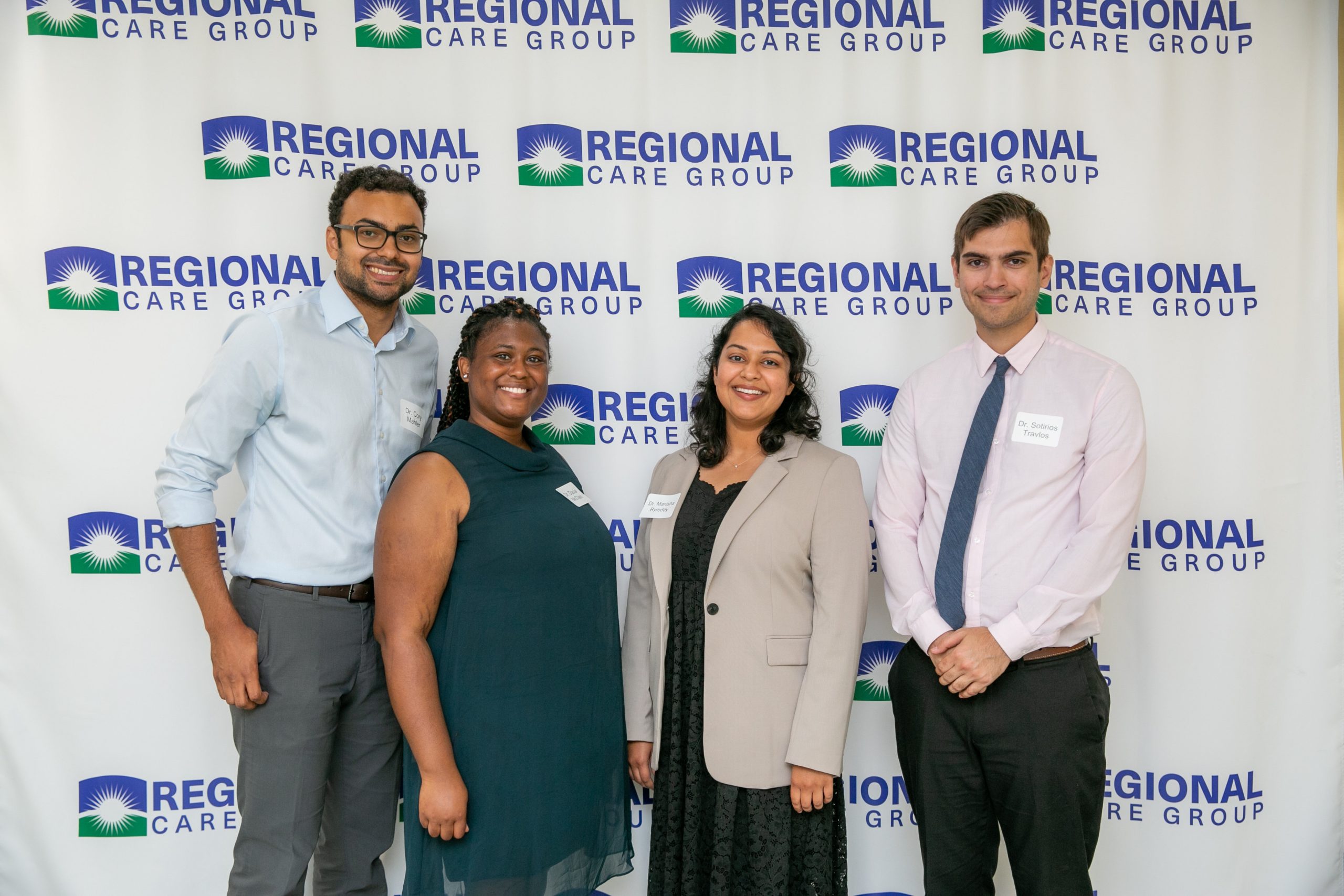
News Story: Inaugural class of psychiatrists joins Regional Health Systems’ residency program at IU School of Medicine
Aug 04 2022
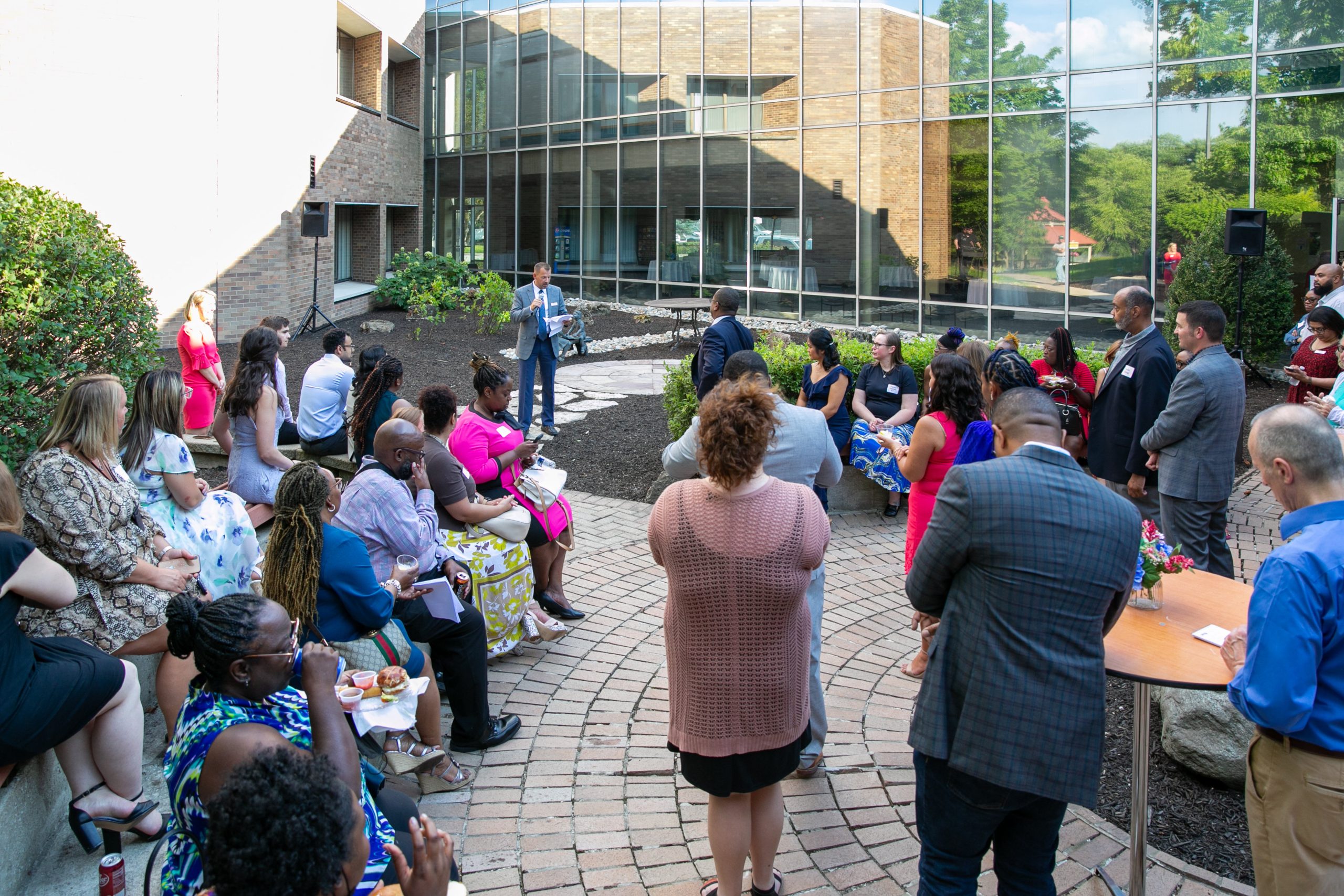
For years, Northwest Indiana has experienced a physician shortage that has been particularly acute in mental health—a shortage that the COVID-19 pandemic exacerbated.
In July, Regional Health Systems took a major step to solving that concern by welcoming four psychiatric residents in the launch of northern Indiana’s first psychiatry residency program.
Dr. Manisha Byreddy, Dr. Cory Mahler, Dr. Dasia McClain and Dr. Sotirios Travlos arrived in the region on July 1 and began seeing patients on July 18th. They were selected from nearly 700 applicants to Regional Health Systems’ accredited program with the Indiana University School of Medicine.
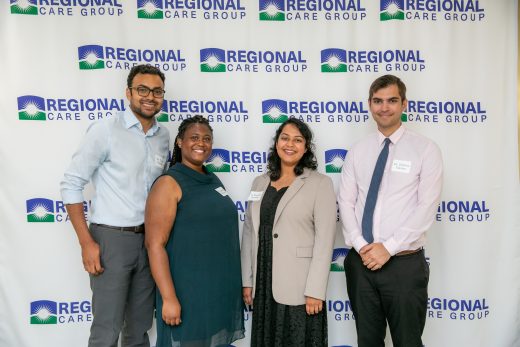
From left: Residents Dr. Cory Mahler, Dr. Dasia McClain, Dr. Manisha Byreddy, Dr. Sotirios Travlos
Regional Health Systems, a Regional Care Group member, credits the Northwest Indiana Graduate Medical Education Consortium (Consortium) for helping bring the first psychiatry residency program to the area. The Consortium is a group of several health care organizations focused on enhancing medical training in the area.
“This is really the product of a lot of hard work from persons who are here and persons who are not here,” said Dr. Kobie I. Douglas, Regional Health Systems’ chief medical officer and IU School of Medicine program director, to about 100 people gathered at a reception welcoming the inaugural cohort in July. “It is a really long time coming.”

Dr. Kobie I. Douglas, Regional Health Systems’ chief medical officer and IU School of Medicine program director, talks with resident Dr. Dasia McClain.
The residents will work in a variety of psychiatric disciplines, including inpatient psychiatry, addictions, child and adolescent mental health care, psychotherapy and primary care. They also will teach.
Douglas said the opportunity to work in that wide range of psychiatric areas was a major reason so many applicants—nearly 500 on the first day—were interested. Another appealing component of the program is the rare chance to follow patients throughout their care, which gives residents valuable experience in treating long term psychiatric conditions. Several residents said they were excited to provide services to an underserved region and to help shape a new program.
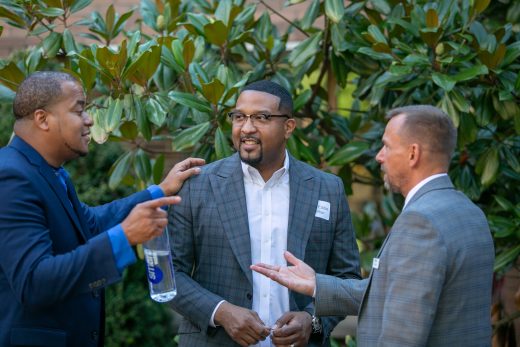
Nicholas Neal, Senator Eddie Melton and Regional Care Group CEO Bill Trowbridge talk at Regional Care Group’s event for the residency program.
Brittany Miller, residency education coordinator at the IU School of Medicine and director of psychiatric education at Regional Health Systems, said other hospitals and health organizations have been supportive.
“It’s going to be amazing,” she said. “Soon, we’ll be able to treat more people and address some of those mental health issues that have surfaced since the pandemic started. The need is here. We just didn’t have the providers.”
Accredited in September 2020, the program places each resident in the region for four years. Four new residents will be added each year for the next three years, bringing a total of 16 psychiatrists to the area. Douglas said that number could grow to 24 new psychiatrists.
“This is really just the beginning,” he said, noting that other providers in the region are expanding family medicine and internal medicine programs.
The growing awareness and increased importance given to mental health is part of a larger societal trend that Douglas said is encouraging.
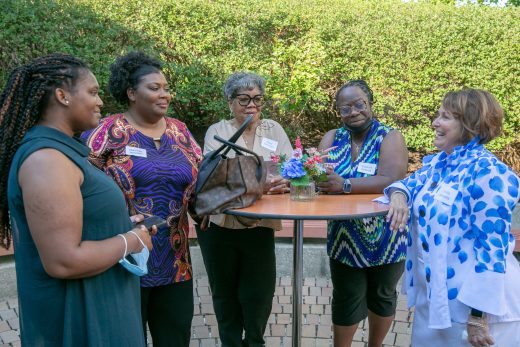
Attendees at Regional Care Group’s event for the inaugural residency class chat.
“When I first became interested in psychiatry,” he said, “I was struck by how often we would tend to take our pain, anguish and trauma and hide it; not express it.”
Now, he said, increasing numbers of people understand how important it is to pay attention to their mental health.
“We understand that depression kills,” Douglas said. “We understand that addiction kills; that trauma kills. I’m really honored to have an opportunity to help train these young doctors learning how to save lives.”

Aug 04 2022

Jul 25 2022